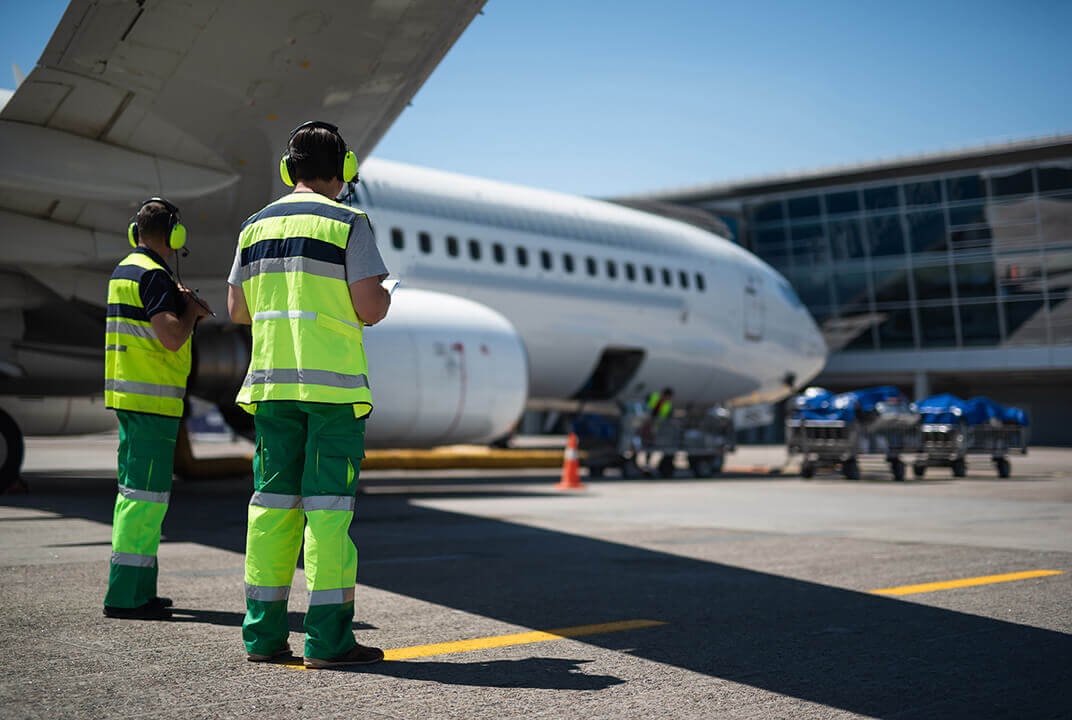Inmarsat signs agreement to start commercial flight trials of Iris air traffic modernisation programme
Second phase of ground-breaking programme with European Space Agency (ESA) to minimise flight delays, save fuel and reduce environment impact of air travel
Inmarsat, the world leader in global mobile satellite communications, today signed a contract with the European Space Agency (ESA) for phase two of the ground-breaking Iris air traffic modernisation programme, which will include important flight trials across Europe to assess the service in a real operational environment.
Iris is being developed to deliver powerful benefits to European aviation by enabling high bandwidth, cost-effective satellite-based datalink communications over Europe. The programme contributes to the delivery of the ‘Single European Sky’, which focuses on modernising air traffic management and air navigation efficiency. Satellite communications reduces the pressure on ground-based frequencies, which third party reports have indicated will be under significant capacity stress in the next 5-10 years.
As part of the programme’s second phase, flight trials will be conducted on approximately 20 aircraft flying commercially over a six-month period starting in 2020, allowing Iris to be assessed in a real operational environment. Selected airlines will take part in the demonstration, with the support of leading Air Navigation Service Providers (ANSPs), to evaluate the Iris programme for air traffic control (ATC) and airline operational communications (AOC) across continental Europe.
Also in this phase, Inmarsat will work with ESA to prepare for pan-European certification of the Iris service provider and define a distribution agreement. In addition, Inmarsat and its partners, such as Thales Alenia Space, will prepare for future air traffic control requirements through research & development and prototyping. This will include transitioning to the Aeronautical Telecommunications Network/Internet Protocol Suite (ATN/IPS) standard, which will make the service truly global.
John Broughton, Senior Vice President of Aircraft Operations and Safety Services at Inmarsat, said: “We are very excited to embark on the next phase of Iris with all of our partners. Important progress has already been made on various critical elements and as a result of strong industry-wide interest, several important agreements have been signed with major European ANSPs, aircraft manufacturers and airlines. Today’s agreement brings us another step closer to delivering the Iris programme.”
Magali Vaissiere, Director of Telecommunications and Integrated Applications at ESA, said: “Flying this technology for six months on some 20 aircraft brings years of research and preparation closer to fruition. We are a step closer to making real the highly anticipated idea of a modern air traffic management system over Europe. We look forward to seeing the results of the commercial flight demonstrations, and the environmental and operational benefits that Iris will bring to Europe’s congested airspace.”
Notes to Editor:
Iris was initiated in 2014, when ESA selected Inmarsat to lead a consortium of European technology companies to develop the programme, including Airbus, Boeing, Honeywell and Thales, in addition to leading ANSPs across the continent, such as DFS (Germany), DSNA (France), ENAIRE (Spain), ENAV (Italy), EUROCONTROL MUAC (North-West Germany, Belgium, Luxembourg and the Netherlands) and NATS (UK).
Iris is uniquely suited to deliver the requirements for safety critical operations: a reliable and efficient datalink is essential for ATM modernisation programmes, such as 4D trajectory operations, to be successfully delivered to airlines and ANSPs.
Under the first phase of Iris, key industry partners, aircraft manufacturers and European ANSPs joined the programme and core infrastructure was deployed and tested for operational readiness, including secure end-to-end connections. This infrastructure is now in the final evaluation stage with partners. Iris will be the first satellite communications service of its kind to be certified in the continent. Satcom terminals are expected to be available as a linefit option by the end of next year, followed by commercial service introduction planned for 2021.
Iris is powered by Inmarsat’s award-winning SB-S digital aircraft operations platform operating on its L-band network that has underpinned global safety services for 40 years. Inmarsat is scheduled to launch two new, advanced L-band payloads to join its existing fleet in 2020 and 2021, further cementing the company’s long-term commitment to the highly reliable safety communications services it offers to the aviation community over this spectrum.
FURTHER INFORMATION
About Inmarsat
Inmarsat is the world leader in global, mobile satellite communications. It owns and operates the world’s most diverse global portfolio of mobile telecommunications satellite networks, and holds a multi-layered, global spectrum portfolio, covering L-band, Ka-band and S-band, enabling unparalleled breadth and diversity in the solutions it provides. Inmarsat’s long-established global distribution network includes not only the world’s leading channel partners but also its own strong direct retail capabilities, enabling end to end customer service assurance.
The company has an unrivalled track record of operating the world’s most reliable global mobile satellite telecommunications networks, sustaining business and mission critical safety & operational applications for 40 years. It is also a major driving force behind technological innovation in mobile satellite communications, sustaining its leadership through a substantial investment and a powerful network of technology and manufacturing partners.
Inmarsat operates across a diversified portfolio of sectors with the financial resources to fund its business strategy and holds leading positions in the Maritime, Government, Aviation and Enterprise satcoms markets, operating consistently as a trusted, responsive and high-quality partner to its customers across the globe.
For further information, follow us on LinkedIn or on Twitter @InmarsatGlobal.
Inmarsat
Jonathan Sinnatt
Director of Corporate Communications
+44 (0)20 7728 1935
jonathan.sinnatt@inmarsat.com
Robeel Haq
Head of Communications, Aviation
+44 (0)20 7728 1352
robeel.haq@inmarsat.com
About the European Space Agency
The European Space Agency (ESA) provides Europe’s gateway to space. ESA is an intergovernmental organisation, created in 1975, with the mission to shape the development of Europe’s space capability and ensure that investment in space delivers benefits to the citizens of Europe and the world.
ESA has 22 Member States: Austria, Belgium, the Czech Republic, Denmark, Estonia, Finland, France, Germany, Greece, Hungary, Ireland, Italy, Luxembourg, the Netherlands, Norway, Poland, Portugal, Romania, Spain, Sweden, Switzerland and the United Kingdom. Slovenia is an Associate Member.
ESA has established formal cooperation with six Member States of the EU. Canada takes part in some ESA programmes under a Cooperation Agreement.
By coordinating the financial and intellectual resources of its members, ESA can undertake programmes and activities far beyond the scope of any single European country. It is working in particular with the EU on implementing the Galileo and Copernicus programmes as well as with Eumetsat for the development of meteorological missions.
ESA develops the launchers, spacecraft and ground facilities needed to keep Europe at the forefront of global space activities.
Today, it develops and launches satellites for Earth observation, navigation, telecommunications and astronomy, sends probes to the far reaches of the Solar System and cooperates in the human exploration of space. ESA also has a strong applications programme developing services in Earth observation, navigation and telecommunications.
Learn more about ESA at www.esa.int
ESA
Alison Goddard
ESA Telecom Communications Officer
+44 (0)1235 444 294
Elena Fillipazzo
ESA Head of ECSAT Communications
+44 (0)1235 444 295
elena.fillipazzo@esa.int

